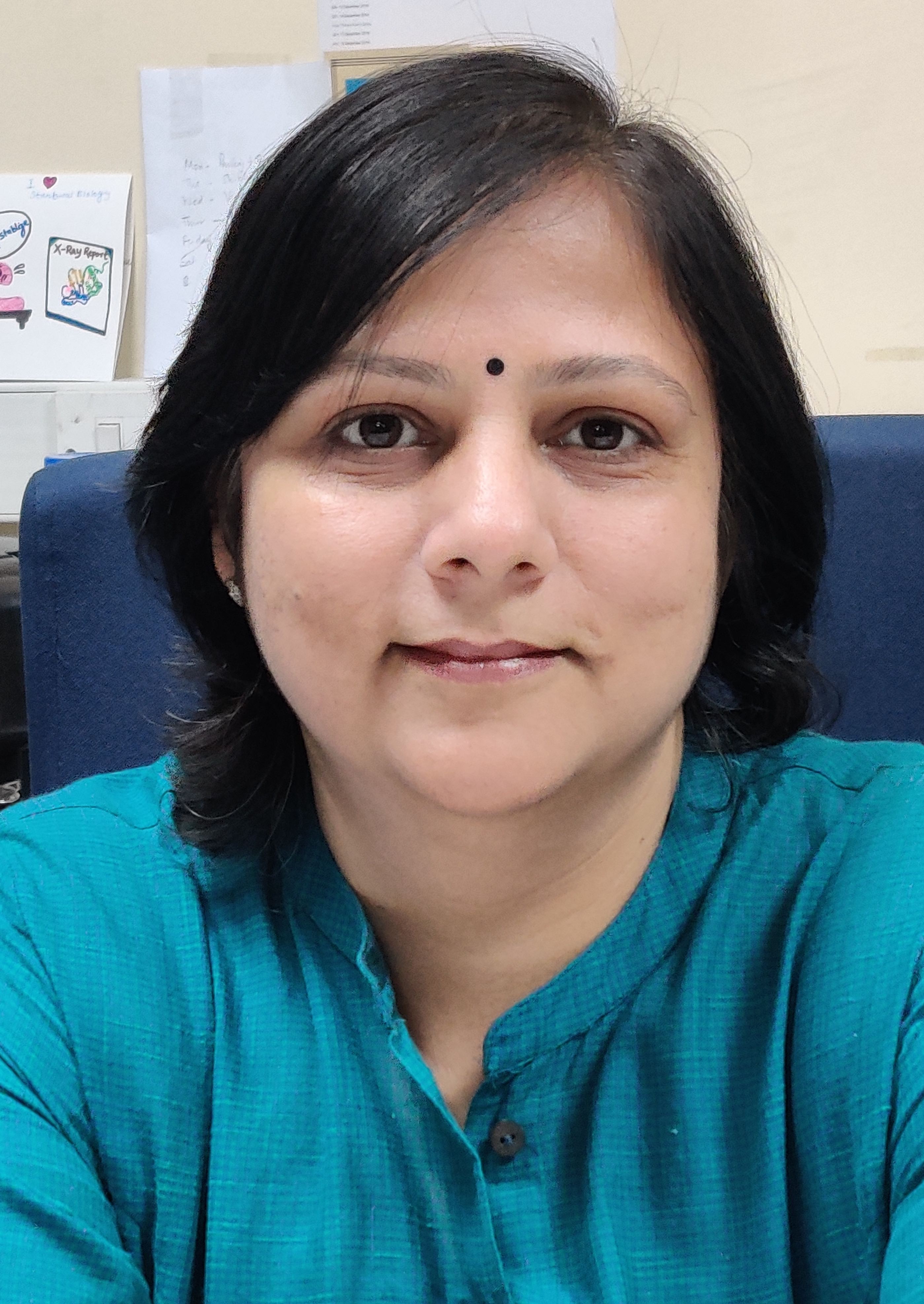
Associate Professor
E-mail: deepti at rcb dot res dot in
Transcription Regulation: Structure and Mechanism
Resistance to antibiotics represents an escalating challenge in the treatment of bacterial infections. Pathogenic bacteria are known to switch phenotype such as planktonic to biofilms, to reduce sensitivity towards antimicrobial agents. These phenotypic transitions are generally regulated at the level of transcription which is an essential process for modulating gene expression profiles in bacteria. The molecular events that underlie transcription regulation include interaction of regulators with promoters and RNA polymerase (RNAP). RNAP and associated factors are conserved across the bacterial domain and serve as excellent targets for broad-spectrum antibacterial therapy.
We employ an integrated approach, involving structural tools, biophysical techniques, biochemical methods and functional in vivo assays to investigate the molecular mechanisms of transcription regulation.
The mechanistic insights obtained using this approach are exploited for the development of novel therapeutic agents against pathogenic bacteria. In addition, knowledge of transcription modulation is utilized to develop inducible expression systems that are sensitive to the presence of small molecules.
Transcription regulation of flagellar and biofilm gene network in Pseudomonas aeruginosa
Pseudomonas aeruoginosa is an opportunistic pathogen and is a primary cause for nosocomial infections.Motility in Pseudomonasis mediated by the action of flagella that are complex dynamic structures composed of numerous proteins. In addition, flagella play a crucial role in adhesion to substrate, biofilm formation and colonization. The regulation of flagellar and biofilm genes is brought about primarily at the transcription level through the action of a number of dedicated regulatory proteins. The research in our lab focuses on structural studies of macromolecular complexes involved in regulation of genesresponsible for biofilm and flagella expression in Pseudomonas.
Allosteric mechanism utilized by transcription factors responsive towards small metabolites
Allostery has been defined as the fundamental process wherein the binding of a ligand or the effector molecule alters the activity of the protein at a distant site. In the case of transcription modulators, effector binding can either increase (activation) or decrease its affinity to the DNA (derepression) thereby altering the gene expression. Thus, transcription modulators serve as molecular switches, turning on and off the expression of genes. Through our structural work on transcription repressor AraR, we have provided essential insights into long-standing fundamental questions in the field of regulation of gene expression and uncovered the mechanistic details of the diverse approaches utilized by transcription modulators to bind different DNA sequences without compromise on specificity and affinity thereby regulating gene expression to different extents at different promoters.
Opportunities:
Inquiries from prospective students, graduate trainees, postdocs with an interest in structural biology are welcome. Please write to deepti at rcb dot res dot in explaining your interests.
| 2023-2026 | Power fellowship, SERB |
| 2019 | Distinguished alumnus award. Gargi College, University of Delhi |
| 2016-2019 | SERB Early Career Award, DST |
| 2012-2016 | Innovative Young Biotechnologist Award, DBT. |
| 2003-2006 | Jane Coffin Child Memorial Fellowship for medical research, New Haven, CT, USA |
| 2002-2003 | Charles Revson Foundation Post Doctoral Fellowship, USA |
| 1995 | University Medal IIT Roorkee |
| 1994 | Dr. G. Pande medal IIT Roorkee |
Dr. Deepti Jain
Associate Professor
Regional Centre for Biotechnology
NCR Biotech Science Cluster
3rd Milestone, Faridabad-Gurgaon Expressway
P.O. Box No. 3, Faridabad - 121 001
Haryana (NCR Delhi), India
E-mail: deepti at rcb dot res dot in
Phone: 91 129-2848839